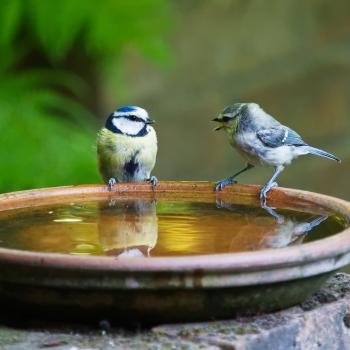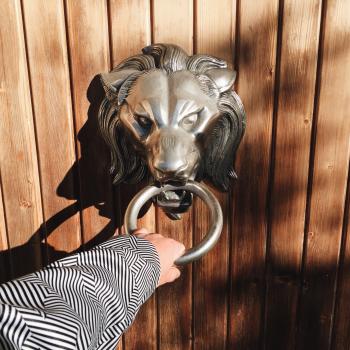A Rough Timeline, Composed of Tweets and Relevant Links
The dates I have listed are based on those found on the Tweets and articles themselves. If a date seems off, please let me know.
If you have written something on this topic that I missed (or comes out after this post originally goes up), please comment or shoot me an email at [email protected]. If you have a Tweet you would like included, feel free to shoot it my way.
December 22, 2019:
- Althaea Sebastiani (@LadyAlthaea on Twitter) kicks the discussion off with a Tweet
Psst… that popular witch book you’re looking at on amazon that’s getting all the acclaim yet was published by a non-Pagan publisher?
At least the first 10 of those reviews were paid reviews.
They’re fake.— Althaea Sebastiani (@LadyAlthaea) December 22, 2019
- Thorn Mooney (@TarotSkeptic) tweets, in response. The tweet is later referenced in the Dec 26 Wild Hunt article.
Also, check the names they’re picking for these ghost writers:
Lisa Chamberlain
Lisa Buckland
Lisa Crowley
Lisa Cunningham
Amy Lisa Crystal
Harmony Magick
Samantha Lisa
Amy Harmony
Lisa ShadowsIt’s *almost* like they’re just capitalizing on search trends. �
— Thorn Mooney (@TarotSkeptic) December 22, 2019
December 26, 2019:
- The Wild Hunt publishes ‘A disturbing trend in published books marketed toward Pagans‘
- Some of the emphasis on ghostwriting as a problem seems to pop up here
February 7, 2020:
- Nathara posts ‘Fake Witchy Authors on Amazon‘, delving into the authors behind some of the Amazon bestsellers. The post goes fairly viral (for the Pagan and witch communities).
- Nathara also posts a Youtube Video with the same title as their article
- This post seems to have kicked off the latest round of discussions, with a focus more on ghostwriting.
February 8:
Continuing with the conversation about fake people writing witch books: the thing that’s even more cringey and concerning is that, well, a couple of those books are *better* than books written by people with traditional book contracts. So what do we make of that?
— Thorn Mooney (@TarotSkeptic) February 8, 2020
One of my fav trashy fiction series had been releasing a book a month since 1986. Big publishing company. The entire series is pubbed under a house name. No idea how many different writers have -and are- actually writing these books. This isn’t uncommon.
— Althaea Sebastiani (@LadyAlthaea) February 8, 2020
Okay, but. They’re not “fake authors.” These are real people, practicing witches who wrote a book on spec, sold the rights, & it was pubbed under a house name. House names are not a new thing. Publishing companies have used them for longer than many of us have been alive.
— Althaea Sebastiani (@LadyAlthaea) February 8, 2020
February 9:
- Kelden posts a Youtube Video ‘Who Are These Authors?‘
- Laura Tempest Zakroff posts ‘The Effect of Ghosts in the Magical Community‘ on Patheos
I think it says more about our community’s ability to discern what they’re reading, and how much we attach to the personality of who we buy from. I have concerns about publishing broadly, but ghostwriting isn’t one, exactly.
— Thorn Mooney (@TarotSkeptic) February 8, 2020
February 10:
- Nathara posts a follow-up to their ‘Fake Witchy Authors on Amazon’ article: ‘The World of Fake Authorship – Part 2′. The post explores PLR – Private Label Rights – and how it works, as well as elaborating on Nathara’s original post.
Too many folks are totally missing the point of this kerfuffle about ‘fake’ witchy authors. If your takeaway is “only buy books from (big trad publisher)” you are one of those folks.
— Bex (@trebleluna) February 10, 2020
As this tweet and the resulting discussion is getting a lot of attention, here’s a boost so you can read the original tweets and ALL the resulting discussions.
Spoilers: the discussion was *never* about fake authors or calling anyone fake. It was about discernment. https://t.co/PveNslXoAa
— Althaea Sebastiani (@LadyAlthaea) February 10, 2020
February 11:
- Thorn Mooney posts about the topic here on Patheos, ‘Fake Witch Books?‘
- Mooney also publishes a Youtube Video under the same title (on Feb 10; I’m grouping them together because they go together). Notable quote from the video: “For many people, when they buy a book about witchcraft they are not just buying the information that is in the book. They are functionally buying a kind of relationship with the author.“
- Nathara posts an update: ‘I Have Been Contacted by Lisa Chamberlain – and May have Found the Re-Spin Seed – Part 3’. The post states that Lisa Chamberlain – a focus of much of the discussions – reached out to Nathara to confirm that Chamberlain was a real person.
The point of the original discussion was never to encourage people to *only* buy from mainstream publishers -who use the same/similar tactics as these ghostwritten books to generate sales. https://t.co/EDGns6d8J3
— Althaea Sebastiani (@LadyAlthaea) February 10, 2020
February 12:
- Leandra Witchwood posts ‘Much Ado About “Fake Authors”‘. Leandra critiques the conversations happening around the ‘fake authors’.
February 14:
- Kelden posts a response to the larger discussions, including a response to Leandra Witchwood’s post: ‘Suspicious Witchy Authors: Community Reactions and My Final Thoughts‘
Some Notes/My Thoughts
One thing I noticed while trying to gather up discussions on the ‘fake witch books’ or ‘fake witch author’ phenomenon was how the conversation shifted over time. Looking at the tweets that started the more visible discussions, the focus was on being critically minded. Thinking about what you were reading and why it was written, who wrote it and how the author was being advertised.
Discernment isn’t just for spirits.
The publishing of the Wild Hunt article on Dec 26 seems to have shifted some of the conversation to ghostwriting and the ‘fake’ quality of the books. This was obviously a much less fruitful discussion.
Nathara’s post on Feb 7 swept through various social media platforms and inflamed the discussion all over again, though this time the focus was much more on ghostwriting and the authors themselves being ‘fake’.
Which wasn’t what the original discussion was about. Looking at Nathara’s second post, with its heavy focus on PLR and problems with Amazon, we see a discussion that is certainly related to the one from December, but it’s got a different focus. (PLR stands for ‘Private Label Rights’. As described by this link: “…when one buys PLR content, they are free to take the work, modify it, put their name on it and even sell it, for example, as an ebook.“) And we see the really unfortunate and wrong assumption that we should just stick to traditional publishing houses coming out in response to this post. (From what I read, I don’t think Nathara said such a thing.)
That’s not a solution to either problem of discernment or the Amazon marketplace.
As I see it, the PLR issue, while related to ghostwriting, is different. We should try to untangle the two a bit more, I think.
When it comes to the PLR and the deluge of questionable books (Ars Technica goes into the Amazon spam problem…in an article from 2011, for reference on how long this has been a problem), I view the problem as similar to one that impacted Steam, a video game distributing service. Steam was, and is, plagued by a lot of bad, regurgitated games. If you want a fun overview of what was happening on Steam, check out this video by game critic Jim Sterling. (Warnings for cursing.) These games were made by piecing together assets bought on the cheap, and they weren’t meant to be enjoyed. They were meant to make money as quick as possible with as little effort as possible. And they choked out a lot of actual indie games.
Same thing is happening on Amazon – though Amazon has actually been dealing with this for longer than Steam has.
I think it absolutely makes sense to be frustrated that actual books – whether ghostwritten or not – are being overwhelmed by PLR. As the Plagiarism Today article I linked to notes:
In my experience, the people who do best with PLR content are, unfortunately, spammers. With scraping and other copyright infringement becoming riskier, most find it cheaper and easier to shell out a small amount of money on PLR content that they can then run through content spinners and then generate thousands of low-quality articles from the set that are at least somewhat unique to the search engines.
When it comes to the many complex and weird ways books are advertised and make it to bestseller lists, well, that’s a much larger topic concerning the whole publishing industry. Not to mention the high profile ‘NYT bestseller scandal’ that happened a few years ago (if you’re interested in reading about that, check this link at Jezebel).
So that’s my hot take. I’ll keep updating this post with new information as it becomes available.
















